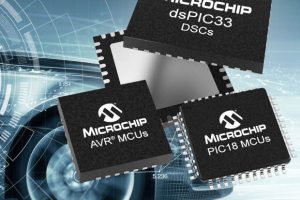Europe provides many unique challenges for global suppliers, such as a very diverse population with varying languages and cultures in a relatively compact area. One clear European leadership area has been controlling the environmental impact of electronics during the entire product lifecycle, including manufacturing, operation and disposal.
Certainly, the European RoHS Directive drove the entire worldwide electronics industry to remove six environmentally hazardous substances from electronics. The transition was painful for many and expensive for all, but keeping dangerous substances out of landfills is certainly a worthy endeavour.
Today’s electronics users demand simple, intuitive interfaces that make the system easy to use without an exhaustive study of the operating manual. “Instant Power On” provides a wonderful user experience at the expense of standby power. Increasing energy costs make “Instant Power On” a luxury people can sacrifice.
Finally, the world has truly become a global marketplace where goods and services flow freely across boundaries, bringing new meaning to the saying “Think global, act local.” Leading us to the question, “What does this mean for the electronics equipment manufacturers (OEMs)?”
OEMs are trying to survive and thrive in an increasingly global, highly competitive environment with a sluggish world economy. They face three main challenges:
- Reduce power consumption wherever possible.
- Communicate with the user via natural language, almost to the point of conversation, for ease of use.
- Time-to-market has been replaced with time-to-change. Fast-moving markets no longer afford OEMs lengthy product definition and development cycles. Product enhancements must be made quickly and reliably to maintain sales and manage channel inventory.
OEMs look to their component vendors to help them deal with highly competitive global markets. Embedded intelligent components continue to move functions from fixed-feature to software-controlled. These programmable components, such as microcontrollers, provide the following solutions to OEM challenges:
- The focus is to reduce both battery and line power consumption while increasing functionality and reliability at a competitive cost. Consumer appliances add small microcontrollers that monitor and detect system activity, allowing subsystems to be powered down. Since the microcontroller remains on in a partially powered state, users can retain the “Instant On” experience. Power supplies, once totally analogue implementations, are being updated to full digital control.
- Displays and touch screens make the user interface more visual and language-based, instead of icon-based. Adding standard communication ports, such as USB, allows the user to customize the system to their unique style or language.
- Moving functions into software allows for quicker modification, flexibility to add unforeseen features, and changes to inventory. Coupled with standard communication ports, changes can be pushed to the user base easily; and value-added functions for consumers provide revenue-enhancement opportunities for OEMs.
In a global marketplace where change accelerates every day, only the nimble survive – so adapting to change is a key to business success.
Steve Sanghi is president and CEO of Microchip Technology
See also: Electronics Weekly’s WEEE Directive In Full Force, a roundup of content related to the Waste Electrical and Electronic Equipment regulations, and a RoHS special, on the European Directive regarding ‘Restriction of Hazardous Substances’.
| |
||||
|---|---|---|---|---|
 |
 |
 |
 |
 |
| Daily Latest (Daily) |
Weekly Roundup (Weekly) |
Mannerisms (Weekly) |
Circuits (Fortnightly) |
Made By Monkeys (Fortnightly) |
 Electronics Weekly Electronics Design & Components Tech News
Electronics Weekly Electronics Design & Components Tech News


